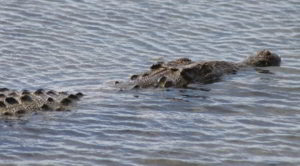
Florida Law and Feeding Wildlife
It is against Florida law to feed certain wildlife. According to the Florida Wildlife Commission (FWC) it is prohibited to feed foxes, bears, coyotes, raccoons, bald eagles, pelicans, sandhill cranes and – you guessed it – crocodiles and alligators. In 2015, the Florida legislature approved changes to Section 379.412 creating a tiered penalty structure for those who violate the law regarding feeding wildlife (except marine fish). The penalties begin with a civil penalty of $100 fine and no criminal charges for the first offense. Gradually the penalties increase. A second offense can result in a second-degree misdemeanor charge, a monetary penalty of up to $500, and up to 60 days in jail. A third offense can result in a first-degree misdemeanor charge, a monetary penalty of up to $1,000, and up to one year in jail. A fourth offense can result in a third-degree felony charge, a monetary fine of up to $5,000, and up to five years in jail.
To consult with an experienced personal injury lawyer today
855-780-9986
Florida Animal Attacks
Florida gets its fair share of attacks from wild animals. It is one of the few places on the globe where the difference between an alligator and crocodile matter. While some years there is at least one confirmed alligator attack, other years there are over a dozen.
If the wild animal has an owner, then he or she will be held liable for injuries resulting from the wild animal’s attack, even if he or she was not directly negligent or responsible for the incident. Florida law distinguishes between tame and wild animals; noting the former are generally safe to be around while the latter are mostly dangerous. Because the owner of a wild animal who is held in captivity must have extensive training and take extensive safety and training precautions, unless someone gets into the enclosure by ignoring all warnings and fences or the animal becomes free under unforeseeable circumstances, the owner will be liable under the law for harm suffered. If the wild animal does not have an owner, then the person or organization that owns the land is may be responsible for that wild animal’s actions.
Of note, Florida has a strict liability for the owner when a dog attacks a person no matter how violent the dog was in the past. The same is true for owners of wild animals who attack humans.
Florida Animal Attack Attorneys Available
If you have been attacked by a wild animal in Florida, or have questions about the state’s laws, call the experienced personal injury attorneys at Bogin, Munns & Munns. Contact us for a free personal injury consultation today.
==========
NOTICE: The article above is not intended to serve as legal advice, and you should not rely on it as such. It is offered only as general information. You should consult with a duly licensed attorney regarding your Florida legal matter, as every situation is unique. Please know that merely reading this article, subscribing to this blog, or otherwise contacting Bogin, Munns & Munns does not establish an attorney-client relationship with our firm. Should you seek legal representation from Bogin, Munns & Munns, any such representation must first be agreed to by the firm and confirmed in a written agreement.
Call or Submit Our Consultation Request Form Today





